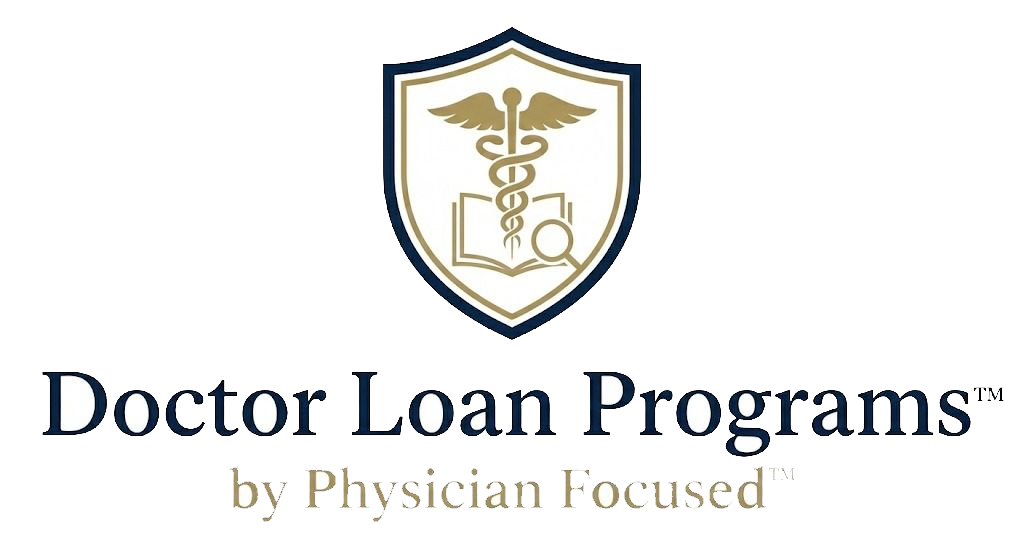Most medical professionals face unique challenges when securing home loans due to their income structure and financial situation. This guide will empower you with the information needed to navigate various home loan programs tailored specifically for physicians and medical professionals. You will discover the benefits and requirements of different options available to help you make informed decisions for your future home purchase.
Types of Home Loan Programs
Several home loan programs cater specifically to physicians and medical professionals, each with unique features and benefits. Understanding these options can help you choose the best fit for your financial situation and homeownership goals.
- Conventional Loans
- FHA Loans
- VA Loans
- Jumbo Loans
- Specialty Programs
Assume that you’re looking for flexibility in your mortgage options; various loan programs might suit your needs.
| Loan Type | Key Features |
| Conventional Loans | Lower interest rates, minimum 3% down payment |
| FHA Loans | Lower credit score requirements, 3.5% down payment |
| VA Loans | No down payment, no private mortgage insurance (PMI) |
| Jumbo Loans | Loans exceeding conforming limits, higher credit standards |
| Specialty Programs | Custom programs for specific professions, tailored rates |
Conventional Loans
Conventional loans are popular among medical professionals due to their competitive interest rates and terms. Typically requiring a credit score of 620 or higher, these loans offer various down payment options, starting as low as 3%. If you have a solid credit history and a reliable income, you may find this loan type advantageous for securing your new home.
FHA Loans
FHA loans are government-backed loans designed to facilitate homeownership, particularly for first-time buyers or those with lower credit scores. With a down payment requirement as low as 3.5%, these loans can make purchasing a home more accessible.
As a medical professional, you might benefit from the more lenient qualifications of FHA loans, especially if your credit history is still developing. This type of financing allows you to leverage lower down payments while accessing additional support through federal insurance, which can be a valuable option when navigating financial hurdles.
VA Loans
VA loans, exclusive to veterans and certain active-duty personnel, provide favorable terms such as no down payment and no PMI. This makes them a highly sought-after option among qualifying physicians and medical professionals.
By utilizing a VA loan, you can secure competitive interest rates and retain more of your savings for other expenses like moving costs or renovations. The absence of PMI not only reduces your monthly payments but also allows you to allocate funds elsewhere, maximizing your purchasing power in a competitive real estate market.
Jumbo Loans
Jumbo loans are tailored for high-value properties that exceed conforming loan limits. While these loans can help you purchase luxury homes, they typically require a higher credit score and larger down payment.
For medical professionals earning significant incomes, jumbo loans may provide the financing necessary to secure upscale residences without compromising on quality. However, be prepared to meet stricter underwriting guidelines while managing higher larger debt responsibilities that come with these loans. Understanding the nuances of jumbo loans can empower you to make informed decisions as you navigate the housing market.
Tips for Physicians and Medical Professionals
When navigating home loan options, consider these valuable tips tailored for you as a physician or medical professional:
- Understand your unique financial situation.
- Shop around for the best loan terms.
- Consult with experts familiar with medical professional loans.
- Prepare all necessary documentation ahead of time.
- Utilize available physician loan programs.
Any approach you take should reflect your specific financial goals and circumstances.
Understanding Loan Terms
Grasping the intricacies of loan terms is important for making informed decisions. Look closely at interest rates, closing costs, and loan duration, as these factors can significantly affect your long-term financial commitment. Familiarize yourself with adjustable vs. fixed-rate mortgages, as each has benefits and drawbacks that may align differently with your career trajectory.
Improving Credit Scores
Enhancing your credit score can open up better loan options and terms for you. Focus on paying down outstanding debts, making timely payments, and maintaining low credit utilization ratios. Regularly reviewing your credit report also helps identify errors that could be negatively impacting your score.
To improve your credit score, consider adopting a disciplined approach to managing your finances. Set up automatic payments for bills to avoid late fees and ensure you are consistently paying off credit card balances. Limit new credit inquiries, as multiple applications in a short time can lower your score. Additionally, becoming an authorized user on a responsible person’s credit card can positively impact your score.
Selecting the right lender is pivotal in securing favorable loan terms. Research lenders who specialize in loans for physicians, as they often understand the unique income structures and financial profiles of medical professionals. Seek recommendations from colleagues or industry experts and compare rates, fees, and customer service reviews.
When choosing a lender, it’s beneficial to meet with loan officers and ask direct questions about their experience with physician loans. Ensure they can explain how your income from residency or varied work patterns will affect your loan application. Personal rapport is also important; you want a lender who communicates transparently and effectively. Look for comprehensive pre-qualification to compare options realistically, ensuring you choose a lender who aligns with your specific financing needs.
Step-by-Step Home Loan Application Process
Overview of the Application Process
| Step | Description |
| 1. Pre-Approval | Obtain initial approval from a lender. |
| 2. Documentation | Gather necessary paperwork. |
| 3. Finalizing | Review terms and close the loan. |
Pre-Approval Steps
To kickstart your home loan application, you should seek pre-approval from lenders, which provides insight into how much you can borrow based on your financial profile. This process typically involves submitting basic financial information, such as income, debt, and credit history, allowing lenders to evaluate your eligibility and set a budget for your home search.
Documentation Required
Your loan application will require various documents to verify your identity, income, and financial history. This typically includes tax returns, W-2 forms, bank statements, and proof of employment. Ensuring that these documents are up-to-date and organized can expedite the approval process.
When compiling your documentation, gather at least two years of tax returns and W-2s to showcase your income consistency. Lenders may also require additional information specific to your profession, such as employment contracts or proof of residency. Having these documents ready in one place can streamline your application and facilitate quicker approval.
Finalizing the Loan
After your application is approved, you’ll begin finalizing the loan, which involves reviewing the loan terms and conditions before closing. During this phase, your lender may conduct a home appraisal and finalize your mortgage rate, ensuring all details match your initial agreement.
Finalizing your loan is a critical step where you verify all rate details, fees, and obligations. You’ll typically either receive the loan estimate or a closing disclosure, which highlights all costs associated with your mortgage. Ensure to read through these documents carefully, as discrepancies can delay the closing process or lead to potential misunderstandings down the line.
Factors to Consider When Choosing a Home Loan
Choosing a home loan involves evaluating various factors that can significantly influence your financial future. You should assess the interest rates, loan amounts, and loan duration that best suit your needs. Each element can affect your monthly payments and overall affordability, making it necessary to choose wisely. Consider your financial situation, lifestyle, and long-term goals before making a decision. Assume that your choice today will impact your financial health for years to come.
- Interest Rates
- Loan Amounts
- Loan Duration
Interest Rates
Interest rates play a key role in determining your monthly mortgage payments. Lower rates can save you thousands over the life of the loan, while higher rates may lead to larger payments and increased financial strain. It’s important to shop around and consider both fixed and variable rate options to find the most suitable solution for your budget.
Loan Amounts
Your loan amount should align with your financial capacity and housing needs. It’s necessary to analyze your income and financial obligations to determine a comfortable borrowing limit. Many physicians opt for larger loans due to their earning potential, but ensure this aligns with sustainable financial practices.
Typically, loans for medical professionals can go up to $1 million, offering the flexibility needed for purchasing higher-value homes. However, it’s advisable to calculate the impact on your monthly budget and future financial goals. Striking the right balance ensures that you can manage repayments comfortably alongside your other commitments.
Loan Duration
The loan duration directly influences your monthly repayment amounts and total interest paid over time. Shorter loan terms typically come with higher monthly payments, while longer terms lower the monthly cost but result in paying more in interest. Selecting the right duration depends on your preferences for cash flow and long-term financial plans.
For instance, a 15-year fixed-rate mortgage can help you build equity faster and pay less interest overall, but the increased monthly payment might strain your budget. Conversely, a 30-year mortgage offers lower payments, allowing for greater disposable income, but you must weigh this against the longer interest payout period. Choosing the right loan duration can determine your financial freedom in the years to come.
Pros and Cons of Popular Home Loan Programs
| Pros | Cons |
|---|---|
| Lower down payment options | Higher interest rates |
| Flexible credit requirements | Potentially longer closing times |
| No private mortgage insurance (PMI) | Limited to specific borrowers |
| Specialized lender support | Less availability in certain areas |
| Tailored loan terms | Income-driven eligibility criteria |
| Streamlined application process | Higher fees in some cases |
| Ability to finance up to 100%. | Not all programs are created equal |
| Support for new graduates | May require detailed documentation |
| Competitive rates for qualified buyers | May face portfolio limitations |
| Accessible for post-residency professionals | Potential penalties for early repayment |
Advantages of Each Program
Each home loan program offers unique advantages tailored to your specific needs. Features like lower down payments, no PMI, and specialized support make these programs appealing for physicians and medical professionals seeking homeownership. Additionally, streamlined processes and understanding lenders can significantly ease your path to acquiring a property, allowing you to focus more on your career and less on financial stress.
Disadvantages of Each Program
While these home loan programs provide significant benefits, they also come with potential drawbacks you should consider. Higher interest rates compared to conventional loans can impact your long-term financial commitment, sometimes increasing your monthly payments significantly. Moreover, eligibility criteria may limit some applicants, and the specific benefits might not always apply based on your individual financial situation.
Additionally, lenders may require precise documentation to verify your income and job stability, which can lengthen the application process. Not all programs are available in every region, limiting your choice if you are relocating. Being aware of these disadvantages will help you make an informed decision that aligns with your financial goals in the long run.

Common Misconceptions about Home Loans for Medical Professionals
Misunderstandings surrounding home loans for medical professionals can hinder your purchasing power. Many assume that high student debt disqualifies them, while others believe they need a substantial down payment or perfect credit. In reality, specialized loan programs often accommodate your unique financial situation, making homeownership more accessible than you think.
Myths Debunked
One prevalent myth is that you must have a pristine credit score to secure a competitive mortgage. In fact, many lenders offer programs tailored specifically for physicians, allowing for lower credit requirements. Additionally, the notion that you need to put down 20% is outdated; various options exist that require much less upfront cash.
Realities of the Market
The current market for home loans tailored to medical professionals reflects an increasing understanding of your financial landscape. Lenders recognize that many doctors and healthcare workers enter the field with significant debt but have strong earning potential thereafter. This balance allows you to access favorable terms, including low or no down payment options, thus facilitating homeownership sooner than you may believe.
Moreover, physicians often receive unique benefits from lenders, such as discounted interest rates or the ability to finance student loans under certain conditions. These programs are particularly valuable considering many new graduates begin their careers with considerable debt. The availability of such tailored options means that you can procure a mortgage that accounts for your anticipated long-term earnings rather than just your current financial status. Therefore, understanding options like the Physician Mortgage Loan can lead you to significant savings and homeownership opportunities that are specifically designed for your unique profession.
Final Words
Following this guide, you now have a comprehensive understanding of home loan programs tailored for physicians and medical professionals. These specialized financing options can play a significant role in achieving your homeownership goals. By leveraging these unique benefits and understanding the application processes, you can confidently navigate your options and choose a loan that aligns with your financial situation. Your success in securing favorable terms starts with the insights gained here.




